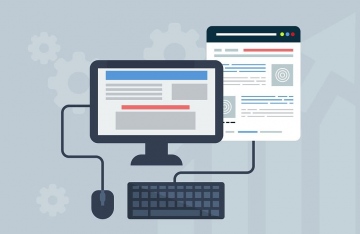If you’re thinking about becoming a web developer, consider the following. A career as a web developer can help you earn a pretty solid salary – a median salary of $64,970 per year, as of 2015, according to the Bureau of Labor Statistics – and you can expect to be able to find a job after you finish your training. The BLS estimates that job growth for the industry will increase by 27 percent through 2024, which is much faster than average for all other jobs. You can find a job in just about any field where a coder’s help is required, and you can earn a good salary.
If this sounds like a good career option to you, take Rebecca Miller-Webster’s advice. In an article on AfterCollege.com, the Lead Developer at HowAboutWe and the founder of Write/Speak/Code provides aspiring web developers gives helpful ideas about how to get started in the field. Her advice can potentially help you advance your career, no matter where you are at in your professional development as a web developer.
The first piece of advice Miller-Webster offers is to learn to code. This is a vital skill all web developers need to have. Start learning coding yourself through online coding education sites like Codecademy and Skillcrush. These sites will teach you the basics and then some. Master HTML, CSS, and JavaScript next. Then try Ruby on Rails, Python, or Django as your next programming language conquests. Startups often ask applicants to know the last three languages, so if you want to work for a young company, learning them is important. Then attend a development boot camp to learn from other students and to practice some real-world coding problems.
Next, share what you’re learning by building websites yourself to showcase your new coding skills. Get a blog or Twitter, and share what you’re building and learning. Continue to add to your skill set, and share what you’re learning in online coding communities. You could help someone else who is learning to code, and you can learn from that person as well. Mentoring is important, says Miller-Webster, as are activities that build community. She likes to work helping others get started working in the field of coding. She especially enjoys helping new coders learn the soft skills they need to be successful.
Finally, Miller-Webster encourages aspiring coders to be active in an online community like Stack or Overflow. You can learn what others are working on and get ideas for your own projects. In return, you share what you’re working on and potentially help other people. Track other people’s work and skill development. As a coder, you’re likely going to collaborate with other coders, and you’ll be communicating regularly during organization meetings, with customers, and with others in your company about marketing, design, customer service, priority management, and products.
To be a good coder, you’ll need to collaborate with others in your organization, share what you learn, be willing to learn from others, and to learn all you can about coding, including multiple coding languages. Coding is a profession that requires constant skill expansion and refinement.




